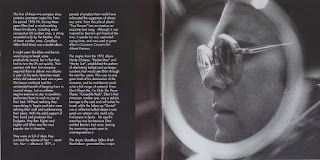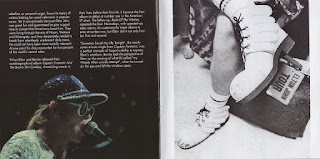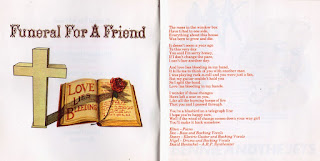Greatest Hits 1970–2002 is a career-spanning collection of Elton John's biggest hits up to 2002. It was released in an alternate 3-CD version (as opposed to the usual 2-CD) and slightly different versions in the United States and the United Kingdom.
The album debuted on the Billboard 200 chart at number 12 on 30 November 2002. It spent 67 weeks on the chart. It was certified gold and platinum in December 2002, 2× platinum in March 2003, 3× platinum in August 2004 and 4x and 5x platinum in February 2011 and 6× platinum in April 2016 by the RIAA.
It was the first Elton John compilation released since the time that PolyGram, which had controlled the pre-1976 Elton John catalogue, was sold to Universal Music Group, which controlled the post-1976 recordings. Prior to 1992, rights to John's music had been complicated as they shifted between various companies. UMG now owns worldwide distribution rights to all of John's music, while sharing overall ownership with John himself.
The CD omits the #1 Adult Contemporary hit "Mama Can't Buy You Love" from The Thom Bell Sessions (top 10 in 1979).
In 2004 the album was re-released and featured the 2003 UK number 1 hit "Are You Ready for Love" as the final track on the second disc, replacing "Song for Guy".
The album is now out of print, and was replaced by the 2017 compilation album Diamonds.
Track listing
All songs written by Elton John and Bernie Taupin unless otherwise noted.
European release
Disc 1
- "Your Song" Elton John, 1970 4:03
- "Tiny Dancer" Madman Across the Water, 1971 6:16
- "Honky Cat" Honky Château, 1972 5:13
- "Rocket Man" Honky Château 4:42
- "Crocodile Rock" Don't Shoot Me I'm Only the Piano Player, 1973 3:55
- "Daniel" Don't Shoot Me I'm Only the Piano Player 3:54
- "Saturday Night's Alright for Fighting" Goodbye Yellow Brick Road, 1973 4:54
- "Goodbye Yellow Brick Road" Goodbye Yellow Brick Road 3:14
- "Candle in the Wind" Goodbye Yellow Brick Road 3:50
- "Bennie and the Jets" Goodbye Yellow Brick Road 5:23
- "Don't Let the Sun Go Down on Me" Caribou, 1974 5:37
- "The Bitch Is Back" Caribou 3:45
- "Philadelphia Freedom" (Edited version) Non-album single, 1975 5:20
- "Someone Saved My Life Tonight" Captain Fantastic and the Brown Dirt Cowboy, 1975 6:45
- "Island Girl" Rock of the Westies, 1975 3:43
- "Don't Go Breaking My Heart" (with Kiki Dee) Non-album single, 1976 4:35
- "Sorry Seems to Be the Hardest Word" Blue Moves, 1976 3:52
Disc 2
- "Blue Eyes" (Elton John, Gary Osborne) Jump Up!, 1982 3:29
- "I'm Still Standing" Too Low for Zero, 1983 3:03
- "I Guess That's Why They Call It the Blues" (Elton John, Bernie Taupin, Davey Johnstone) Too Low for Zero 4:44
- "Sad Songs (Say So Much)" Breaking Hearts, 1984 4:50
- "Nikita" Ice on Fire, 1985 5:45
- "Sacrifice" Sleeping with the Past, 1989 5:06
- "The One" The One, 1992 5:53
- "Kiss the Bride" Too Low for Zero 4:23
- "Can You Feel the Love Tonight" (music by Elton John, lyrics by Tim Rice) The Lion King soundtrack, 1994 4:02
- "Circle of Life" (music by Elton John, lyrics by Tim Rice) The Lion King soundtrack 4:52
- "Believe" Made in England, 1995 4:47
- "Made in England" Made in England 4:50
- "Something About the Way You Look Tonight" The Big Picture, 1997 5:09
- "Written in the Stars" (featuring LeAnn Rimes, written by Rice) Elton John and Tim Rice's Aida, 1999 4:17
- "I Want Love" Songs from the West Coast, 2001 4:36
- "This Train Don't Stop There Anymore" Songs from the West Coast 4:39
- "Song for Guy" A Single Man, 1978 6:46






































































